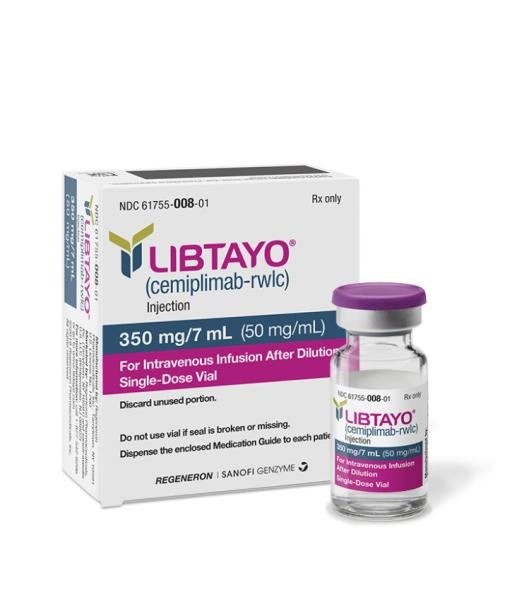Cemiplimab Interactions
There are 606 drugs known to interact with cemiplimab, along with 7 disease interactions. Of the total drug interactions, 3 are major, and 603 are moderate.
- View all 606 medications that may interact with cemiplimab
- View cemiplimab disease interactions (7)
Most frequently checked interactions
View interaction reports for cemiplimab and the medicines listed below.
- Acetylsalicylic Acid (aspirin)
- Activated Charcoal (charcoal)
- Actonel (risedronate)
- Advair Diskus (fluticasone / salmeterol)
- Alcohol (contained in alcoholic beverages) (ethanol)
- Aspirin Low Strength (aspirin)
- Centrum Silver (multivitamin with minerals)
- Co-trimoxazole (sulfamethoxazole / trimethoprim)
- Coenzyme Q10 (ubiquinone)
- Copper (copper gluconate)
- Cymbalta (duloxetine)
- D3 (cholecalciferol)
- Denorex Therapeutic (coal tar/menthol topical)
- Dexilant (dexlansoprazole)
- Dextrose (glucose)
- Diflucan (fluconazole)
- Diltiazem Hydrochloride SR (diltiazem)
- Dymista (azelastine / fluticasone nasal)
- Eliquis (apixaban)
- Ethyl Alcohol (ethanol)
- Fentanyl Transdermal System (fentanyl)
- Fish Oil (omega-3 polyunsaturated fatty acids)
- Flovent HFA (fluticasone)
- Glycerol (glycerin)
- Metoprolol Succinate ER (metoprolol)
- Paracetamol (acetaminophen)
- Quercetin (bioflavonoids)
- Vitamin B12 (cyanocobalamin)
- Vitamin C (ascorbic acid)
- Vitamin D3 (cholecalciferol)
Cemiplimab disease interactions
There are 7 disease interactions with cemiplimab which include:
- immune system disorder
- colitis
- hepatic impairment
- nephritis/renal dysfunction
- previous chest radiation
- HSCT
- organ transplant
More about cemiplimab
- cemiplimab consumer information
- Compare alternatives
- Reviews (10)
- Side effects
- Dosage information
- During pregnancy
- Drug class: anti-PD-1 and PD-L1 monoclonal antibodies (immune checkpoint inhibitors)
- Breastfeeding
- En español
Related treatment guides
Drug Interaction Classification
| Highly clinically significant. Avoid combinations; the risk of the interaction outweighs the benefit. | |
| Moderately clinically significant. Usually avoid combinations; use it only under special circumstances. | |
| Minimally clinically significant. Minimize risk; assess risk and consider an alternative drug, take steps to circumvent the interaction risk and/or institute a monitoring plan. | |
| No interaction information available. |
See also:
Further information
Always consult your healthcare provider to ensure the information displayed on this page applies to your personal circumstances.


